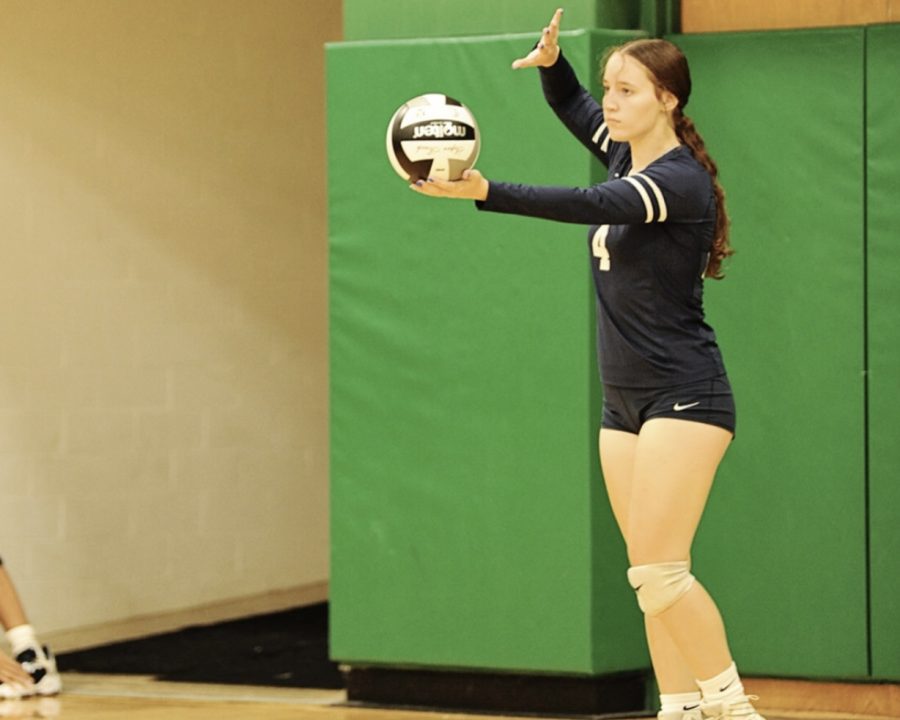The indefinite dedication of a high school athlete
Cassidy Wren stepping up to serve.
March 1, 2023
Every high school in the country encourages students to participate in extracurriculars and the majority of them choose to play a sport. However, only a select few are able to balance work, friends, and grades during the season. Why is this the case? Maybe it’s because a high school sport takes an immense amount of dedication that only an athlete realizes.
First off, there is practice. As a volleyball player, I had to put aside after-school plans. We practiced two to two-and-a-half hours a day, six days a week. Many other sports can relate to a similar routine: get out of class, change clothes, tape up or put on a brace, and get to practice on time. Afterwards, you’re leaving school sweaty, tired, and too gross to hang with friends anyway.
Next, you have games, tournaments, meets, or competitions. Whichever one your sport participates in, will most likely consume your weekends. For volleyball, that could mean beloved days off ripped away by a game, or full weekends taken by tournaments. Away games are sometimes so far that inviting friends is out of the question. From football games in New York to dance states in Columbus, traveling these distances could turn a single, short game into an all-consuming ordeal.
As if two-and-a-half hours of grueling practice weren’t enough, add on 45 minutes to an hour of lifting right after. With 20 minutes of hitting drills not far behind me, I can personally say that even the thought of box jumps and squats make my legs tremble. With muscles shaking, we push through our last few sets so we can finally go home. However, workouts are more than the ones done at school. As a high school athlete, you need to make sure you’re in the best shape possible, which often includes a personal exercise routine, taking up the little free-time you have.
All of this strife can take a serious toll on your body. Athletes will end up sore, exhausted, and sometimes even injured. High school hallways are littered with kids on crutches, in casts, and sporting different braces, trying their best to heal quickly and completely. The severity of these injuries is, however, shocking. I lost my eighth grade volleyball season to a broken back, forcing me to come into my freshman season at a disadvantage. One of my vertebrae was crushed and I was told it will never fully heal, meaning that if I do not keep up with treatment, it will continuously rebreak. These lifelong injuries at such a young age can be detrimental but seem to be all part of the athlete lifestyle.
Not only is your physical health affected, but your mental health is also under stress. The constant practice schedule can cause a burnout that throws you off your rhythm for a while. This combination could make homework and school increasingly difficult with a lack of sleep from the busy schedule.
Being a high school athlete is often underappreciated for the amount of dedication it takes. It often becomes the equivalent to a job on top of the school day we already have. Though we make sacrifices, we love our sports. We have to have a passion for what we do or we wouldn’t be able to do it. So to all high school athletes that are struggling, stressed or overwhelmed, keep pushing because we understand.
